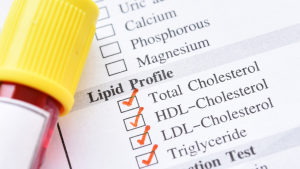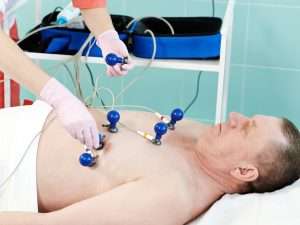Introduction
Postural Orthostatic Tachycardia Syndrome (POTS) is a complex condition that often goes undiagnosed due to its wide range of symptoms. Recognizing the early signs of POTS is crucial for timely diagnosis and management. At The Heartbeat Clinic in McKinney, Texas, we specialize in diagnosing and treating POTS with a comprehensive approach tailored to each patient. In this article, we will explore the early signs of POTS, diagnostic methods, and treatment options to help you take control of your health.
What is POTS and Why is It Important to Recognize?
Postural Orthostatic Tachycardia Syndrome (POTS) is a complex condition that often goes undiagnosed due to its wide range of symptoms. Recognizing the early signs of POTS is crucial for timely diagnosis and management. At The Heartbeat Clinic in McKinney, Texas, we specialize in diagnosing and treating POTS with a comprehensive approach tailored to each patient. In this article, we will explore the early signs of POTS, diagnostic methods, and treatment options to help you take control of your health.
Spotting Early Symptoms of POTS: Key Signs You Shouldn’t Ignore
Recognizing early symptoms of POTS is the key to getting the right care at the right time. Below are the signs that indicate you may need professional evaluation and timely management to ensure the best outcomes.
- Dizziness or Lightheadedness: Often occurs upon standing or changing positions.
- Heart Palpitations: Noticeable irregular or rapid heartbeats.
- Fatigue: Persistent tiredness that doesn’t improve with rest.
- Brain Fog: Difficulty concentrating or thinking clearly.
- Fainting: Episodes of syncope or near-syncope.
- Gastrointestinal Issues: Nausea, bloating, or abdominal pain.
- Sweating Abnormalities: Excessive sweating or inability to sweat.
These symptoms may vary in intensity and frequency, making it essential to seek professional evaluation if you suspect POTS.
When Should You Seek Professional Help?
POTS can be subtle and easy to overlook in its early stages. Paying attention to recurring symptoms and how they manifest during daily activities can help in identifying the condition early. Symptoms like lightheadedness, heart palpitations, or unexplained fatigue are often among the first signs that warrant further investigation.
How is POTS Diagnosed?
Accurate diagnosis is the first step toward effective management. At The Heartbeat Clinic, we use advanced diagnostic tools and a thorough evaluation process to confirm POTS.
Diagnostic Methods:
- Tilt Table Test: Evaluates how your body responds to positional changes, a cornerstone test for diagnosing POTS.
- 24-Hour Holter Monitoring: Tracks heart rate and rhythm over an extended period.
- Autonomic Nervous System Testing: Assesses how well your autonomic functions regulate heart rate and blood pressure.
- Comprehensive Medical History: Understanding your symptoms and medical background to rule out other conditions.
Our systematic approach ensures a conclusive diagnosis and sets the foundation for personalized treatment.
Read more:
Can a tilt table test help diagnose POTS
Can a Cardiologists Do a Tilt Table Test in Office?
What Are the Best Treatment Options for POTS?
Managing POTS requires a multi-faceted approach tailored to each patient’s needs. Early intervention and consistent care can significantly improve quality of life.
Key Management Strategies:
- Lifestyle Modifications:
- Increased Fluid and Salt Intake: Helps improve blood volume and circulation.
- Compression Garments: Prevents blood pooling in the legs.
- Gradual Exercise Programs: Builds cardiovascular endurance without overexertion.
- Medication Management:
- Prescribing medications such as beta-blockers or midodrine to manage heart rate and blood pressure.
- IV Fluids:
- Administering intravenous fluids for immediate symptom relief during severe episodes.
- Physical Therapy:
- Customized programs designed to improve physical conditioning and reduce symptoms.
- Patient Education:
- Providing resources and support to help patients understand and manage their condition.
Why Choose The Heartbeat Clinic for POTS Management?
When it comes to POTS care, The Heartbeat Clinic is dedicated to providing innovative solutions with a compassionate touch. Our team tailors every diagnosis and treatment to the individual, combining advanced technology with patient-focused care to ensure the best outcomes. Below are the reasons why we are the best choice for your POTS care:
Comprehensive Diagnostic Approach
At The Heartbeat Clinic, we combine state-of-the-art diagnostic tools with a thorough evaluation process to ensure accurate diagnosis and effective treatment plans.
Personalized Care Plans
We understand that every patient experiences POTS differently. Our specialists create individualized management strategies that include lifestyle changes, medications, and physical therapy tailored to your specific needs.
Supportive Care and Education
Our team provides ongoing education to help patients understand their condition and make informed decisions about their care. This includes guidance on daily routines and coping mechanisms for managing symptoms.
Ongoing Monitoring and Long-Term Support
POTS often requires long-term management. Regular follow-ups allow us to monitor progress, adjust treatment plans, and provide the support you need to live a healthier life.
Early Treatment Options for POTS: Your Path to Recovery
Starting treatment early can prevent symptoms from worsening and improve overall outcomes. At The Heartbeat Clinic, we offer:
- Medications: Tailored prescriptions to stabilize heart rate and blood pressure.
- Dietary Guidance: Personalized nutrition plans to optimize hydration and blood volume.
- Exercise Programs: Safe and effective physical activity plans to improve tolerance and stamina.
- Advanced Testing and Monitoring: Continuous evaluation to track progress and refine treatment plans.
Conclusion
Recognizing the early signs of POTS is the first step toward effective management. With comprehensive diagnostic tools, personalized care plans, and ongoing support, The Heartbeat Clinic is your trusted partner in managing POTS. If you’re experiencing symptoms or have been diagnosed with POTS, contact us today to schedule a consultation and take the first step toward improved health.
FAQs
1. Can POTS develop suddenly?
Yes, POTS symptoms can appear suddenly or develop gradually over time. Triggers like infections or stress can play a role.
2. What is the difference between POTS and general dizziness?
POTS involves a sustained increase in heart rate upon standing, often accompanied by multiple symptoms, whereas general dizziness can have various unrelated causes.
3. Can POTS affect mental health?
Yes, living with POTS can impact mental health, leading to anxiety or depression. Comprehensive care addresses both physical and emotional well-being.
4. Is POTS more common in women?
Yes, POTS is more frequently diagnosed in women, particularly those aged 15-50.
5. Can children be diagnosed with POTS?
Yes, POTS can affect individuals of all ages, including children and adolescents.
6. What lifestyle changes help manage POTS symptoms?
Increased fluid and salt intake, compression garments, and gradual exercise programs can be beneficial.
7. Is there a cure for POTS?
While there is no cure, symptoms can be managed effectively with the right treatment plan.
8. How long does it take to see improvements with POTS treatment?
Improvements vary but may be noticeable within weeks of starting treatment, depending on the severity of symptoms and adherence to the care plan.
9. Are there specific exercises recommended for POTS patients?
Yes, exercises that build cardiovascular strength gradually, such as recumbent biking or swimming, are often recommended.
10. How can The Heartbeat Clinic help with POTS?
We offer comprehensive diagnostics, personalized treatment plans, and ongoing support to manage POTS effectively, Contact us for more info.
Disclaimer
This article is for informational purposes only and should not replace professional medical advice. Always consult a qualified healthcare provider for diagnosis and treatment of medical conditions.






